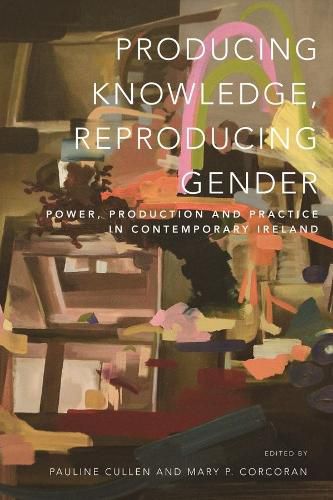Readings Newsletter
Become a Readings Member to make your shopping experience even easier.
Sign in or sign up for free!
You’re not far away from qualifying for FREE standard shipping within Australia
You’ve qualified for FREE standard shipping within Australia
The cart is loading…






This fresh collection of essays examines the continued significance of gender as a marker of inequality in the lives of women across diverse contexts in Irish society. It is a cliche to say that we live in a knowledge society, but exactly whose knowledge sets the economic, political, social, and cultural parameters in any given society? Contributors tackle this question by taking the reader on a gender knowledge journey through the contemporary workplace, the state and civil society and into the education and wider cultural domains. The essays demonstrate the persistence of power differentials, the resilience of gender stereotypes and the ongoing reproduction of specific kinds of gender exclusions. Ideas about gender (often outdated and ill conceived) continue to maintain existing power imbalances in tech work, finance, education, and media. Those ideas also frame public policy debates about sex work, homelessness, women’s activism and reproductive rights. Finally, a gender knowledge perspective reveals the downstream impact of gender and others forms of difference and inequality in relation to the teaching profession, game culture, book reviewing and access to archival materials on historical abuse. Producing Knowledge, Reproducing Gender: power, production and practice in Ireland will appeal to those interested in gender studies, political sociology and the sociology of knowledge.
$9.00 standard shipping within Australia
FREE standard shipping within Australia for orders over $100.00
Express & International shipping calculated at checkout
Stock availability can be subject to change without notice. We recommend calling the shop or contacting our online team to check availability of low stock items. Please see our Shopping Online page for more details.
This fresh collection of essays examines the continued significance of gender as a marker of inequality in the lives of women across diverse contexts in Irish society. It is a cliche to say that we live in a knowledge society, but exactly whose knowledge sets the economic, political, social, and cultural parameters in any given society? Contributors tackle this question by taking the reader on a gender knowledge journey through the contemporary workplace, the state and civil society and into the education and wider cultural domains. The essays demonstrate the persistence of power differentials, the resilience of gender stereotypes and the ongoing reproduction of specific kinds of gender exclusions. Ideas about gender (often outdated and ill conceived) continue to maintain existing power imbalances in tech work, finance, education, and media. Those ideas also frame public policy debates about sex work, homelessness, women’s activism and reproductive rights. Finally, a gender knowledge perspective reveals the downstream impact of gender and others forms of difference and inequality in relation to the teaching profession, game culture, book reviewing and access to archival materials on historical abuse. Producing Knowledge, Reproducing Gender: power, production and practice in Ireland will appeal to those interested in gender studies, political sociology and the sociology of knowledge.